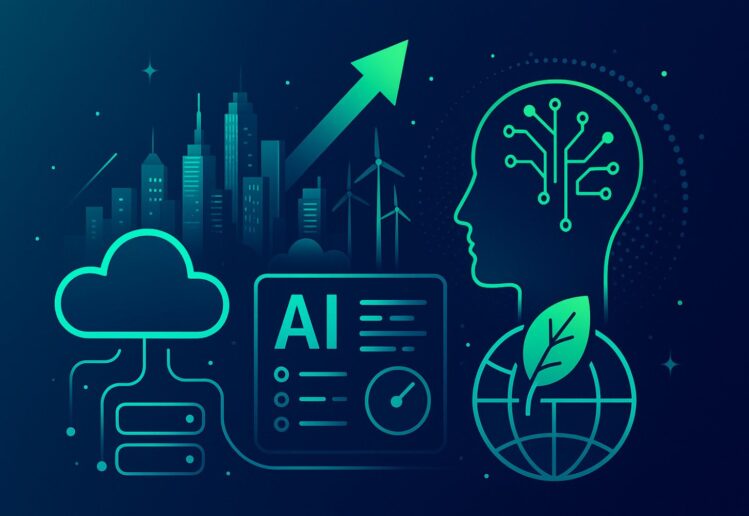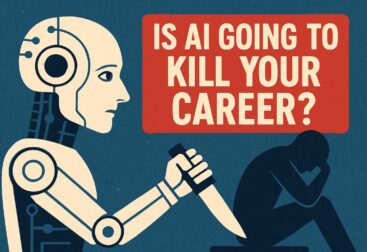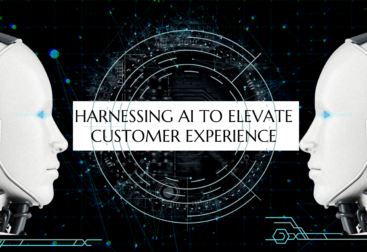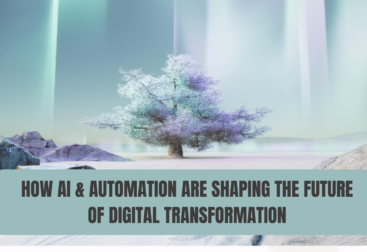We are standing at an inflection point – where technology is no longer just a tool but a transformative force reshaping the very fabric of industries, organizations & even human behavior. In boardrooms and sprint planning meetings alike, one truth is becoming clear – the leadership playbook that worked yesterday will not carry us forward today.
As a manager deeply embedded in the tech ecosystem and as a speaker engaging with innovators, I see a profound shift emerging. The next generation of leaders is not just tech-literate; they are tech-integrated. They think in systems, act with agility & lead with empathy – because in a world driven by AI, automation & digital ecosystems, it is the human layer that becomes the differentiator.
This article is my invitation to you – whether you are a fellow product leader, a technologist, or an executive – to reflect and rewire your leadership mindset for the realities of tomorrow.
The Collapse of the Command-and-Control Model
Traditional leadership was built on hierarchy, control & top-down decision-making. That structure thrived in an era where change was incremental. But technology has introduced exponentiality. AI models that double in capability every few months. Software updates pushed in hours, not years. Market landscapes that can shift overnight because of a startup in another part of the world.
In such an environment, the leader’s role is no longer to dictate but to enable.
- No longer to command but to orchestrate.
- No longer to protect status quo but to nurture continuous reinvention.
Companies that cling to rigid models find themselves disrupted – not by larger players, but by smaller, more agile, tech-fueled teams that move faster and learn faster.
The Rise of Tech Empathy
Here is a paradox – as MACHINES get SMARTER, LEADERS need to get more HUMAN.
AI can generate reports. Algorithms can optimize operations. But only human leaders can create trust, set vision & build resilient cultures.
I call this Tech Empathy – the ability to deeply understand both technology and the people who are impacted by it. This is leadership’s new superpower.
Consider this:
- When rolling out AI in your customer service operations, the tech knowledge ensures efficiency.
- But tech empathy ensures that your human agents are reskilled and valued, rather than displaced and demotivated.
Leaders who cultivate tech empathy will not only avoid resistance but will also harness technology to elevate human potential – not replace it.
Product Thinking – A Leadership Muscle
As a Product Manager, I see product thinking as one of the most transferable and crucial leadership mindsets in this new era.
What is product thinking?
- It is obsessing over user needs.
- It is shipping value incrementally.
- It is iterating based on feedback, not assumption.
- It is viewing every challenge as an opportunity to experiment and learn.
Imagine if every leader, not just product people, thought this way:
- HR leaders treating employee engagement like a product, constantly iterating to improve it.
- Sales leaders experiment with digital tools and refining pitches based on customer analytics.
- CEOs running the organization like an agile platform – modular, adaptive & scalable.
This is not theory; it is already happening in organizations that are thriving amid technological disruption.
Leading in the Era of Digital Trust
With great technology comes great responsibility. As leaders embrace AI, data platforms & digital ecosystems, they are also being handed the stewardship of trust.
And let us be honest – the tech industry has had trust issues:
- Data privacy breaches
- Algorithmic biases
- Manipulative design patterns
The new leadership code demands not just compliance, but conscience.
Ask yourself:
- Are we building technology that respects user agency?
- Are we transparent about how AI makes decisions in our products?
- Are we actively auditing for bias and correcting course?
Your answer to these questions will define not only your company’s reputation but also your leadership legacy in the digital age.
The Skills Stack for Tomorrow’s Tech Leaders
Let me make this practical. Based on my interactions with technology teams, product organizations & leadership circles, here’s the evolving skills stack I believe every modern leader must build:
- Systems Thinking – Ability to see beyond silos and understand how technology, people & processes interconnect.
- Digital Fluency – Not coding, but understanding how technologies like AI, cloud & APIs shape business models.
- Empathy & Ethics – Leading with compassion and ensuring tech adoption aligns with societal good.
- Agility & Adaptability – Operating with startup speed, even inside large enterprises.
- Storytelling with Data – Using analytics not just for reporting but to craft compelling narratives for change.
- Collaborative Intelligence – Mastering the art of human-machine collaboration, not competition.
Leaders who stick these skills will not just survive – they will define the future.
A Call to Lead the Transformation
We often talk about digital transformation as if it is an IT project.
But true transformation is cultural, behavioral & deeply human.
Leaders set the tone:
- If you model curiosity about technology, your teams will experiment more.
- If you show vulnerability about not knowing everything in this fast-changing world, your teams will feel safer to learn.
- If you prioritize long-term trust over short-term gains, your organization will build lasting resilience.
Technology is the great accelerator. But leadership is a great amplifier.
When both evolve together, that’s when real progress happens.
My Thoughts – Your Leadership Upgrade
Here is my challenge to you as you finish reading this:
- Audit your current leadership style. Where are you still operating with 20th-century habits in a 21st-century world?
- Identify one new skill from the skills stack to actively build in the next 3 months.
- Have a conversation this week about tech empathy with your team.
Because the future is not waiting. It is already being built – by leaders who choose to upgrade not just their tech stack, but their leadership mindset.
Let us not be spectators. Let us be the architects.











